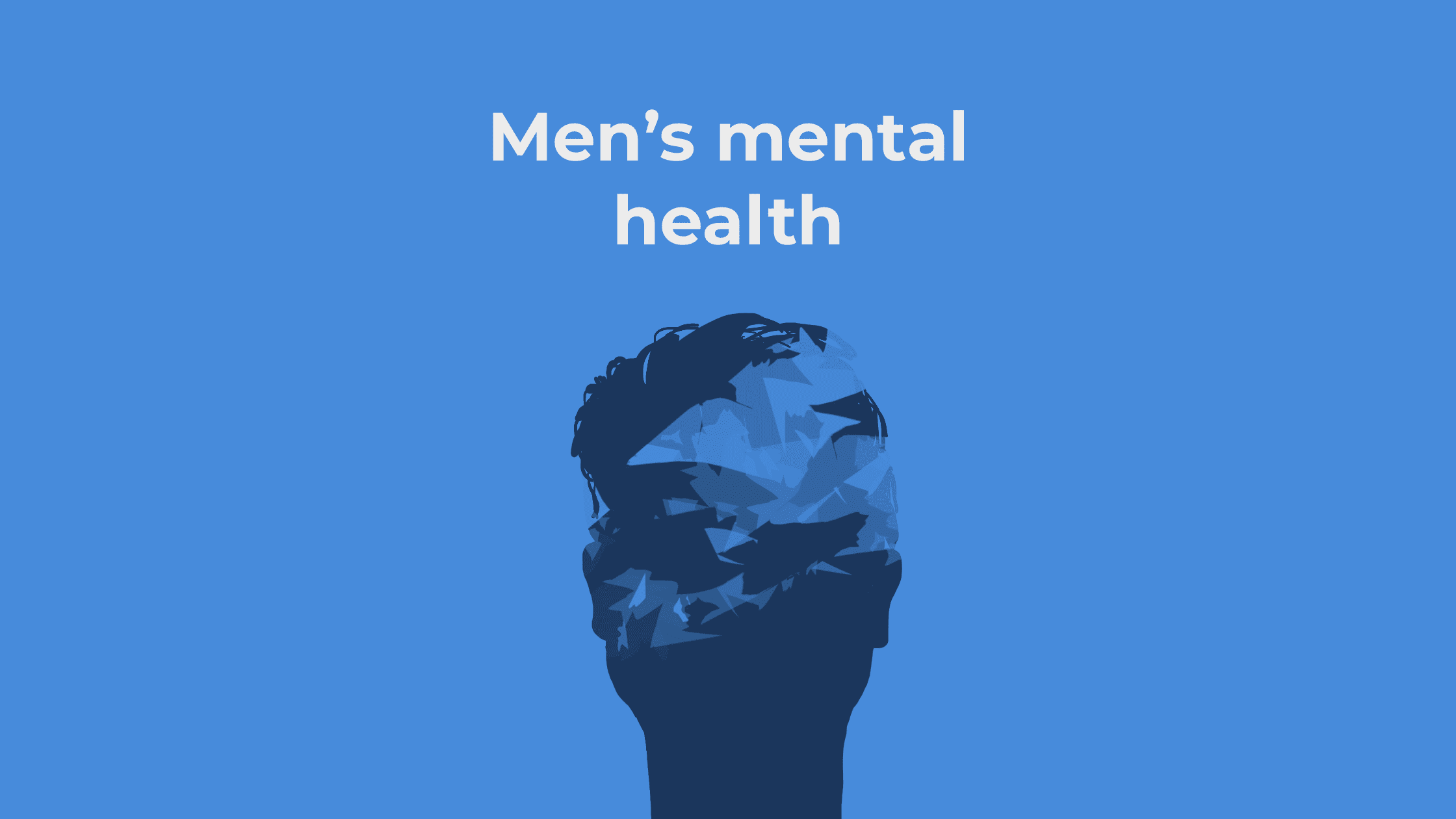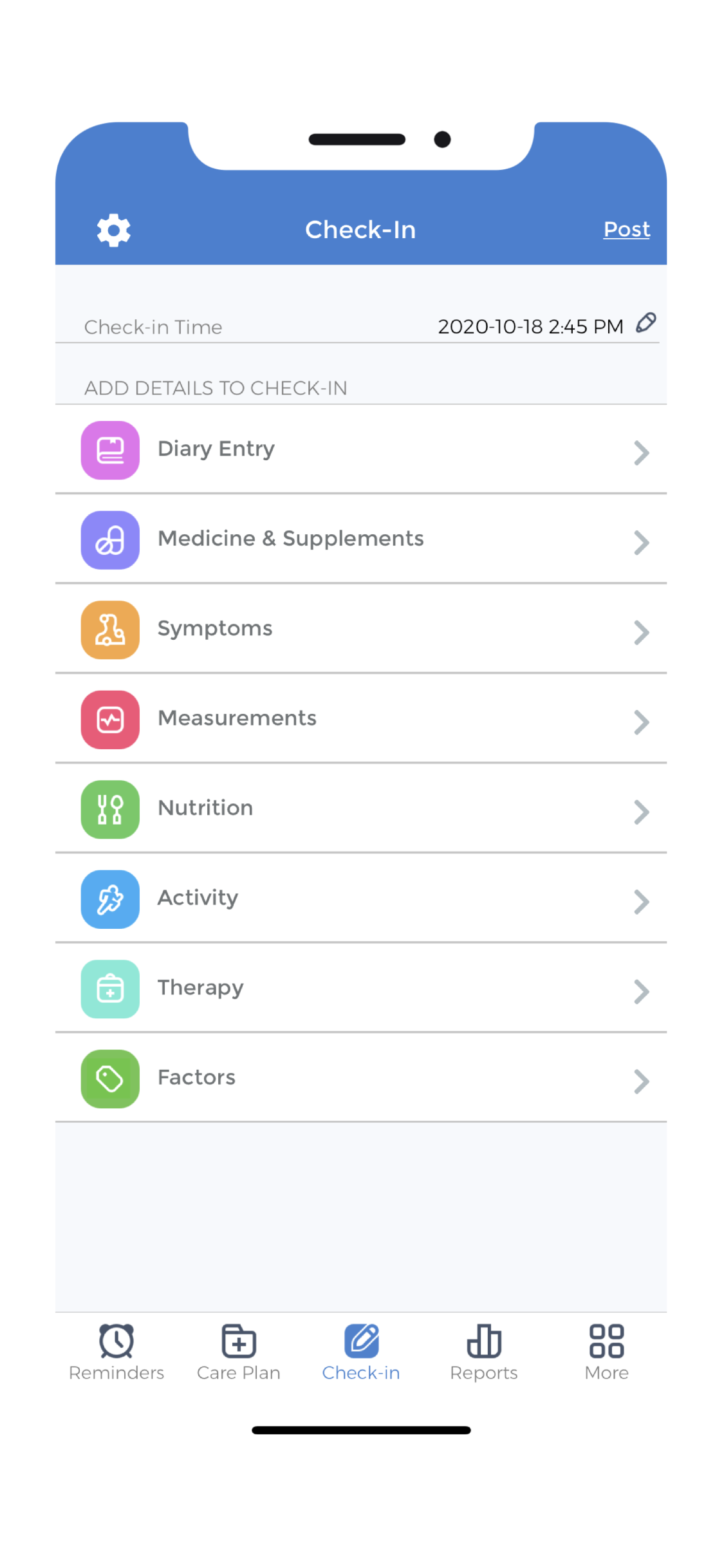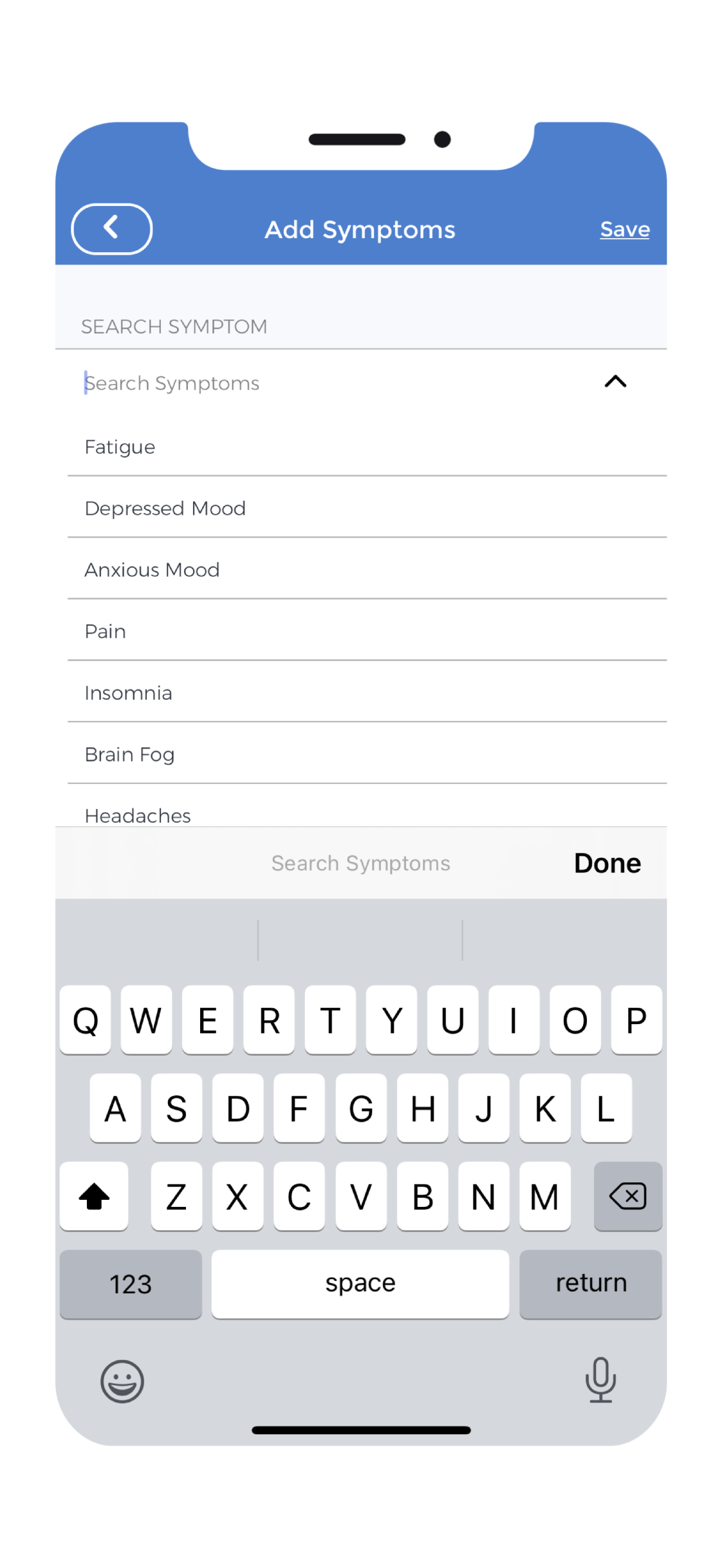
Did you know that nearly one in nine men in the United States will experience some form of anxiety or depression in their lifetime? Even more startling is the research that shows that less than half of these men will seek and receive some form of treatment. While anxiety in men is less likely to be diagnosed than anxiety in women, they definitely do suffer from anxiety, they are just less likely to show it. Men and women are different, and so is the way that they express and cope with anxiety and depression and other mental health issues. Let’s work together to raise awareness of how signs and symptoms of mental health conditions may present themselves in men and to reduce the stigma that can prevent men from seeking help.
What are anxiety and depression?
Anxiety and depression are conditions that each has their own causes and may share similar symptoms and treatments. They can also occur at the same time.
- Anxiety – an emotion characterized by a feeling of uneasiness and worry. Chronic anxiety can lead to irrational thoughts and fears that can be debilitating and interfere with your daily life.
- Depression – a mood disorder characterized by feeling down, sad or upset. Experiencing these feelings for several days or weeks can be concerning.
What causes male anxiety and depression?
The causes of anxiety and depression can be unknown and are different for everyone. Men are less to be diagnosed than women, and less likely to be treated. Therefore, it can be difficult to pinpoint exactly what the triggers may be, sometimes it can be a difficult time, or sometimes a combination of things that have built up over time. While sometimes there may be no obvious reason at all. Below are some factors that can lead men to develop anxiety or depression:
- employment problems
- relationship problems
- health issues
- social problems
- alcohol and substance abuse
- significant life changes (divorce, having a baby)
What are the symptoms of anxiety and depression in men?
Because men are less like to seek help, data and research is limited. Seeking help can culturally be seen as a sign of weakness in men. Men may feel pressured to show emotions, so they tend to express them in masculine ways which may be more socially acceptable. Below are some symptoms and warning signs which men may manifest:
- anger and irritability
- changes in mood, energy or appetite
- trouble sleeping or sleeping too much
- muscle aches and pains, headaches
- relationship issues
- feeling sad or hopeless, increased worry or stress
- misusing alcohol or drugs to cope
- engaging in high-risk activities
Men’s mental health
Studies have shown that approximately six out of ten men experience at least one traumatic experience in their lives. These traumatic experiences tend to be related to physical assault, accidents, disaster, or witnessing death or injury. Post-traumatic stress disorder, PTSD, is a mental health condition that occurs after someone has experienced a traumatic event. It can take weeks, months or years for PTSD to manifest following the traumatic event. PTSD can force the individual to relive the traumatic event through nightmares or flashbacks, avoid situations or places that remind them of it and many other symptoms. These symptoms can interfere with their everyday lives and can lead to anxiety to depression.
Alcohol and drug abuse on male mental health
Those who suffer from anxiety or depression tend to turn to alcohol and drugs to try and cope. Men in particular, tend to turn to alcohol or drugs to try and cover or block out their symptoms of anxiety or depression. This can make the symptoms even worse. Approximately one in five men develop alcohol dependency in their lives. Compared to women, men are almost two times more likely to binge drink. This also leads men to have increasing rates of deaths and hospitalizations as a result of alcohol. Men are also more likely to have consumed alcohol just before dying by suicide. Men also have much higher rates of substance abuse, 6.4% compared to women, 2.5%.
Men’s mental health and the stigma
Data in 2018 showed that men are 3.5 times more likely to die by suicide than women (R). In high-income countries, the World Health Organization, WHO, reported that men are three times more likely than women to die by suicide. Regardless of these figures, men are still less likely to reach out and seek help for mental health issues.
One of the biggest hurdles men face in admitting and seeking help for their mental health issues is cultural stigma. Generally, a lot of men see anxiety, depression and other mental health issues as a sign of weakness, they do not want to admit that they may have this problem. This kind of thinking is outdated, however many still view mental health issues as a personal problem and a lack of personal strength. Many men think that real men do not ask for help when it comes to asking for help.
What is toxic masculinity?
Toxic masculinity is a concept that it is our teachings of traditional male gender roles that lead men and boys to limit their emotions. They cannot express their emotions openly and any kind of display of that kind would be seen as feminine or weak. This leads to men not reporting any symptoms or issues they might be facing. Which then leads to increased rates of anxiety and depression symptoms. Men have been known to turn to aggression and violence as they have been taught it to be socially acceptable. Emotional expression is avoided, and they deny any vulnerability. Toxic masculinity essentially is associated with negative effects on men’s mental and physical health. This leads to shorter lifespans, suicide, violent deaths, and mental health-related issues.
Reducing the stigma of anxiety in men and mental health
One of the biggest things we can do as a society to help drive change is to raise awareness and provide education on the issues that men face. A big challenge when it comes to helping men to address their mental health is encouraging them to speak openly and confidently about it. We, as a society need to understand that mental health is a medical problem and can be treated. Men are raised from birth to not speak about their emotions or to act emotionally. They become victims of the belief that men should be tough enough to deal with their own problems. This means that they do not look for help. Their mental health issues are left untreated. This leads them to turn to alcohol and other substances, affecting their physical and social relationships.
Our goal should be to be transparent about the role that substance abuse plays in mental health issues as a coping mechanism. We want to raise awareness and education and let the men in our lives know of the options available to them and the support that they have.
Supporting Men’s Mental Health
It can be hard to talk about mental health, especially for men. It can be very difficult to spot anxiety in men, or depression, or other mental health issues. As family or friend, if you notice that someone you care about may be struggling, you can look for certain signs to see if they may need outside help:
- changes in mood
- physical symptoms that can’t be explained, such as headaches
- sadness or hopelessness
- weight change
If you notice these signs in someone, you can take action by letting them know that asking for help is a sign of strength and you can help them in contacting a specialist. You can also take other actions to help the man you care about, such as:
- Become informed – understanding what they may be going through and educating yourself can help you approach them.
- Ask – ask them if they are okay. Mention something different that you may have noticed about their behavior. It can be difficult for men to talk about their mental health, so asking can be a way to get them to open up.
- Listen – let them know that you are there to listen, no judgement or anything. Give them your full attention.
- Guide them to take action – start by helping them focus on simple things that would improve their wellbeing. Suggest that they confide in someone else that they trust to help them open up. Direct them towards support groups, a counsellor or a therapist.
- Let them know that they are not alone – show that you care, check-in with them. This will also give you an idea of whether they are getting better or not.
It takes a lot of courage and strength to start a conversation with a friend or loved one about mental health issues. It’s highly probable that there is a male in your life who may be experiencing anxiety or depression and you have the power to help them make a difference.
Men’s Mental Health and CareClinic
How can the app help you?

If you are struggling with anxiety, depression or other mental health issues, the CareClinic app can be a very useful tool. This user-friendly app is free to use and comes with many features such as a diary, medicine & supplement tracker, symptom tracker, nutrition tracker, activity tracker and therapy tracker. You can use the app to track and log their symptoms, activity, diet, and any medication, for example.
The CareClinic app allows you to enter as much information as you want, the more you enter, the better the app will be able in providing you with logs, charts and correlations to give you an idea of what may be affecting you.
You can then monitor your symptoms and create a strategy to take ownership of the possible emotions you may be experiencing.
The app also provides you with the ability to share your information with your healthcare professionals; doctors, therapists or even family or friends.
The details you enter and track on the app will provide your support team to gain an accurate diagnosis. This will allow them to help create effective treatment solutions.
Create a self-care plan for managing mental health
Use the symptom tracker
If you are not yet ready to share your thoughts and emotions with someone, you can use the CareClinic app to help you manage your mental health. You can create care plans in the app and use the symptom tracker to log any emotional or physical symptoms you may experience.
It can be tough for you to note down what you are experiencing. But recording your experience may give you an idea of what is going on if you need to reach out for help. Seeing a pattern in your symptoms may let you know that you may be going through specific mental health issues.
Create a diary entry for tracking anxiety or anything else

You can use the diary feature of the app to make a note of whatever may cross your mind, whether positive or negative. You can always go back to your entries to see what you experienced on a certain day.
Using the symptom tracker along with the diary feature can be a great tool to help you see correlations and give you a better idea of what exactly went on.
You will be able to see if you are making progress or if things may be getting worse. Your diary entries will help you discover any negative behavioral patterns so that you can eliminate them. You will also see any positive behaviors which you can continue to reinforce to help combat your anxiety.
Track your appointments with the therapy tracker
The app also features a therapy tracker, should you have decided to seek help, whether professional or self-help. You can record any types of therapies you may be used to help you with your mental health issues. This can include professional therapists, meditation, or any breathing exercises to help you. You can set reminders to alert you when you have something coming up so that you never miss an appointment or an important meditation session.
Keep track of your medication
If you are ready to seek help and your doctor or therapist prescribes you with some medication, you can use the medication & supplement tracker to help you out. The medication & supplement tracker will help you stay on top of your medication. You can search for your medicine and enter relevant information such as dosage and frequency. You can even add a reminder so the app can always alert you when it’s time for a dose.
Using the multiple features that the app offers can maximize your treatment. This will help provide you with a better understanding of who you are and how you can manage your emotions.
Your Care Team
One of the greatest benefits of the CareClinic app is the Care Team feature. This feature allows you to add family members, friends or any healthcare professionals. You can connect with your Care Team at any point and let them know how you are doing. They can provide you with the support that you need and help monitor your progress. You can set this feature up, once you are comfortable with sharing what you are going through with others.
Anxiety in men – You’re not alone
If you are experiencing or know someone who is experiencing mental health issues, it is important to know that it is OK to ask for help. And if you have overcome mental health obstacles in your life, it can be very beneficial to share your story.
This can help someone who may be in a position in which you once were. Reducing the stigmas against men’s mental health sometimes means that we should be willing to talk about the times when we ourselves needed help.


